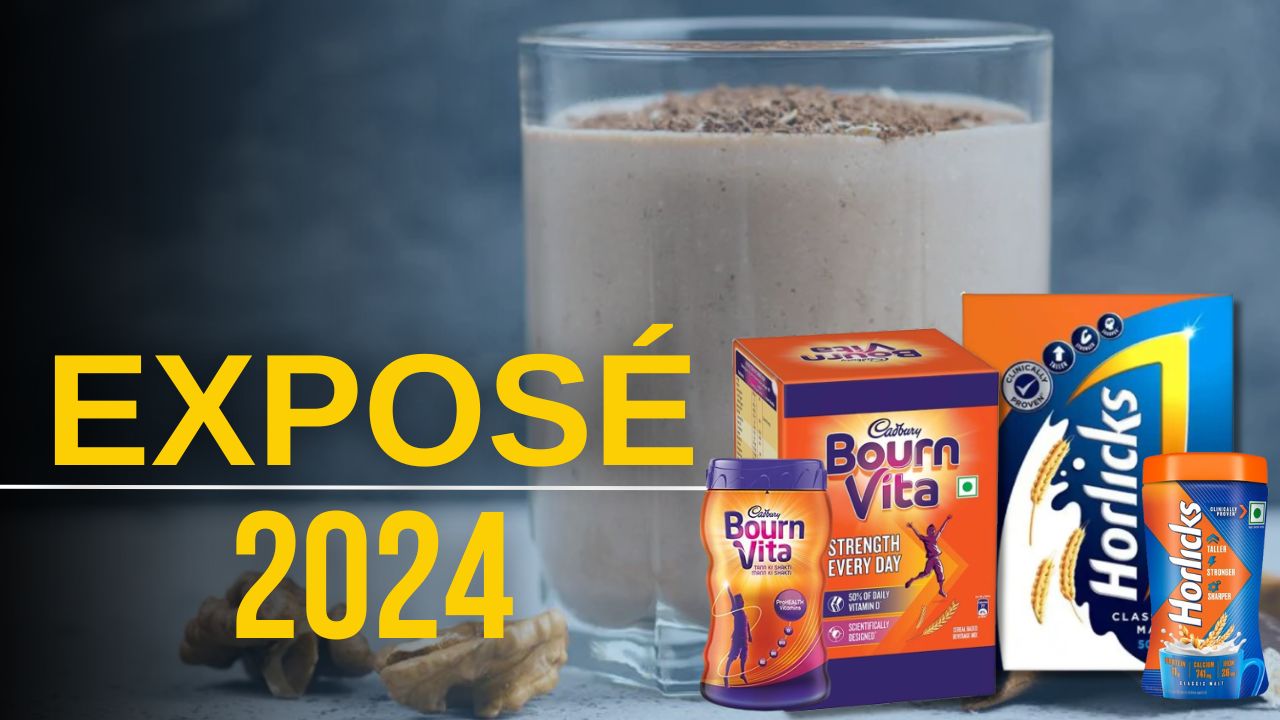

The "Healthy" Illusion: Cracking down on sugary drinks
Remember those catchy jingles? "I'm a Complan boy! I'm a Complan girl!" Or how about "Boost is the Secret of My Energy"? For decades, these slogans, along with the iconic "Taller, Stronger, Sharper" tagline of Horlicks, have been etched into the minds of Indian consumers. They've shaped a generation's belief that these powdered milk drinks are the key to children's health and nutrition. But that carefully crafted image is now crumbling. India's food regulator, the Food Safety and Standards Authority of India (FSSAI), is taking aim at the "health drink" label, forcing major brands to rethink their marketing. But is this a genuine step towards consumer protection, or just a superficial change?
The rise of the "Health Drink" empire: 'Marketing to Mothers'
India has a long-standing issue with child malnutrition. This created a lucrative market for companies to swoop in with a seemingly simple solution: milk-based drinks that promised to supplement a child's diet and ensure "proper" development. The early 2000s saw a surge in advertising, with brands like Horlicks and Complan backing their claims with "clinical studies." Horlicks, for example, launched a campaign based on a study that supposedly showed their beverage aided height and weight growth in school children. The message resonated deeply with parents, especially mothers, who were eager to provide the best for their children. Complan went ahead and claimed that their drink could help children to grow twice as fast.
The sugar scandal: Food Pharmer and the unmasking of "Health" drinks
The "health drink" bubble began to burst when consumers and activists started questioning the sugar content of these beverages. The turning point came when Revant Himatsingka, known online as Food Pharmer, released a viral Instagram video critiquing Cadbury's Bournvita. He pointed out the shockingly high sugar content – 37 grams of sugar in a 100-gram serving – and sarcastically suggested that the brand's tagline, 'Tayyari jeet ki' (Preparation to win), should be changed to 'Tayyari diabetes ki' (Preparing for diabetes). The video sparked national outrage and brought the issue of misleading health claims into the spotlight.
FSSAI steps in: Reclassifying,bBut not regulating sugar content
Finally, even the government took notice. The FSSAI issued a directive ordering all food business operators (FBOs) to stop categorizing these milk-based drinks as "health drinks" or "energy drinks" on their e-commerce platforms and marketing materials. The regulator pointed out that unlike many other countries, India lacks a specific regulatory definition for "health drinks." This loophole had allowed brands to freely market their sugary products under this misleading label. Now, companies are being forced to recategorise their products, removing the "health drink" tag altogether. HUL has dropped the health label from ‘Horlicks’ and ‘Boost’ it is now repositioning the beverage as a “Functional and Nutritional drink”.
The Regulatory Response: A Step in the right direction, but Is It enough?
The FSSAI's directive is a positive step towards greater transparency. However, it doesn't fully address the core issue: the high sugar content in these drinks. While companies like HUL are rebranding their products as "Functional and Nutritional drinks", the ingredients and sugar levels remain largely unchanged. This raises the question: will a mere label change truly impact consumer choices? Also the bigger question is how does the government dissuade companies from incorporating so much sugar in their drinks?
Beyond labelling: The need for comprehensive sugar regulation
What's truly needed is a comprehensive approach to regulate sugar content in processed foods and beverages, especially those marketed towards children. Clear labelling guidelines that highlight the risks of excessive sugar consumption, similar to warning labels on tobacco products, could be a powerful tool. This would empower consumers to make informed decisions and potentially force companies to reformulate their products with lower sugar content.
Following the Compliance:
A wake-up call for consumers and the industry
The "health drink" controversy serves as a wake-up call for both consumers and the food industry. It highlights the power of marketing to shape perceptions and the need for greater vigilance regarding health claims. While the FSSAI's directive is a step in the right direction, it's merely the first step in a longer journey towards ensuring that consumers, especially parents, have access to accurate information and healthier choices. The onus is now on both the government to implement stricter regulations regarding sugar content and on consumers to demand transparency and accountability from food manufacturers. Ultimately, the future of the "health drink" market in India will depend on a collective effort to prioritize genuine nutrition over misleading marketing, ensuring that children are not unknowingly put on a path towards health problems due to excessive sugar consumption. This issue also underscores the broader need for a more robust regulatory framework for processed foods in India, one that prioritizes public health over industry profits. The hope is that this controversy will spark a wider conversation about nutrition, marketing ethics, and the role of the government in safeguarding the health of its citizens.